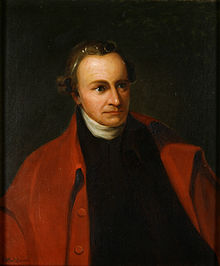
Thomas Kidd summarizes his introduction with these words:
Can we still place Henry in the pantheon of leading Founders if he opposed the Constitution? Can a sincere patriot question the Constitution itself, the document that has ostensibly become the bedrock of national freedom? Whatever we think of his resistance to the “more perfect union” embraced by other patriots, Henry’s opposition to the Constitution was born out of the cause that defined his career, an unshakable commitment to liberty (xiii).

 N.T. Wright presses this point in his outstanding The Resurrection of the Son of God. Paul contrasts the biblical view of the Resurrection with that of the ancients:
N.T. Wright presses this point in his outstanding The Resurrection of the Son of God. Paul contrasts the biblical view of the Resurrection with that of the ancients: Thomas Kidd
Thomas Kidd A short dispute arises between Ubertino and William in Umberto Eco’sThe Name of the Rose about how heretics respond to torture. William argues that in torture everything returns to your mind, “as if you are being transported, not toward heaven, but toward hell.” “Under torture,” he continues, “you say not only what the inquisitor wants, but also what you imagine might please him.” Under torture, heretics tell the most absurd lies, “because it is no longer himself speaking, but his lust, the devils of his soul.”
A short dispute arises between Ubertino and William in Umberto Eco’sThe Name of the Rose about how heretics respond to torture. William argues that in torture everything returns to your mind, “as if you are being transported, not toward heaven, but toward hell.” “Under torture,” he continues, “you say not only what the inquisitor wants, but also what you imagine might please him.” Under torture, heretics tell the most absurd lies, “because it is no longer himself speaking, but his lust, the devils of his soul.”